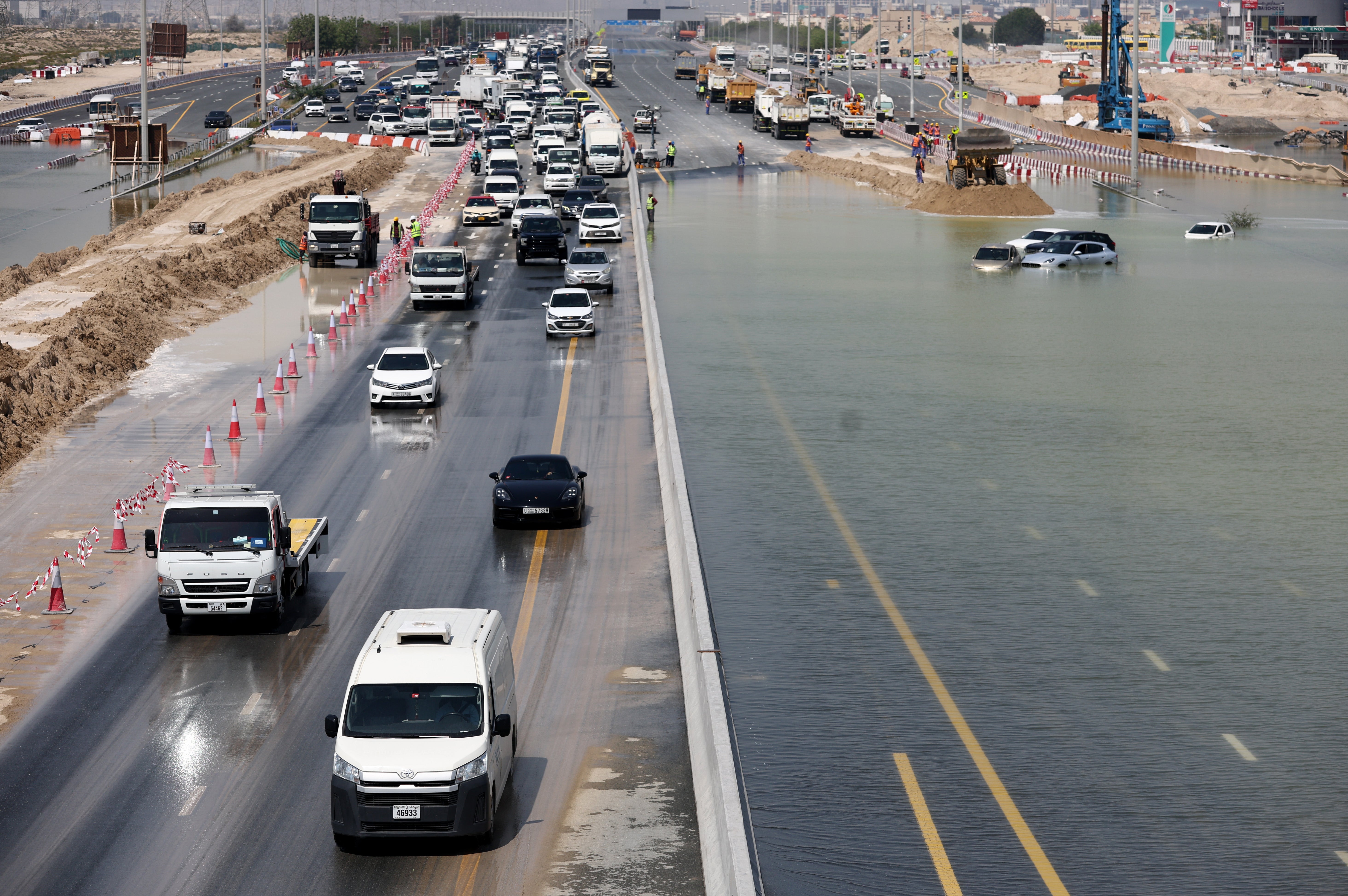Chinese city sees ‘underwear falling from sky’ after cloud seeding to break heatwave
People in Chongqing suspect cloud seeding caused strong winds that sent laundry flying but authorities deny claim
Your support helps us to tell the story
From reproductive rights to climate change to Big Tech, The Independent is on the ground when the story is developing. Whether it's investigating the financials of Elon Musk's pro-Trump PAC or producing our latest documentary, 'The A Word', which shines a light on the American women fighting for reproductive rights, we know how important it is to parse out the facts from the messaging.
At such a critical moment in US history, we need reporters on the ground. Your donation allows us to keep sending journalists to speak to both sides of the story.
The Independent is trusted by Americans across the entire political spectrum. And unlike many other quality news outlets, we choose not to lock Americans out of our reporting and analysis with paywalls. We believe quality journalism should be available to everyone, paid for by those who can afford it.
Your support makes all the difference.Heavy gusts of winds swept through a central Chinese city, sending people’s laundry flying, after authorities artificially stimulated rainfall to break a severe heatwave.
The unexpected winds of up to 122kmph in Chongqing, dubbed the "9/2 Chongqing underwear crisis", prompted speculation that cloud seeding was responsible for the scattering of laundry left out to dry in highrise apartments.
Southwestern China has been suffering under an unusually late heatwave, with temperatures ranging between 35-40C, shutting down schools and delaying the start of the autumn season.
In an attempt to break the heat, local authorities are reported to have stimulated artificial rain, a technique known as cloud seeding. Cloud seeding involves dispersing chemicals like silver iodide into clouds to trigger rainfall.
In China, the authorities have admitted they used cloud seeding to generate rainfall, but maintain that it did not cause the subsequent strong winds. Nearly 200 cloud-seeding rockets were fired, resulting in rain.
Zhang Yixuan, deputy director of the Chongqing Weather Modification Office, attributed the strong winds to naturally occurring convection.
Residents remained sceptical, sharing their experiences on social media. "I just went out and it suddenly started to rain heavily and underwear fell from the sky,” a resident named Ethele said on Weibo.

The incident sparked thousands of comments about the "underwear crisis". A hashtag suggesting "if you think you messed up at work, just think of the Chongqing Meteorological Bureau” garnered 18 million engagements, reported The Guardian.
First developed in the 1940s, cloud seeding has been utilised in over 50 nations worldwide, including China, the US, Australia, Thailand, and Russia, though its possible side effects remain poorly studied.
Earlier this year the UAE was hit by a year’s worth of rainfall in just a few days, prompting speculation that the freak weather event was caused by “cloud seeding”, though experts cited global warming as a more likely contributing factor.
Cloud seeding has long been met with scepticism, as many scientists question its overall effectiveness and potential unintended consequences. While there is limited understanding of the changes it can bring to weather such as altering wind patterns, a study in the United Arab Emirates has previously shown that cloud seeding operations led to an increase in urban flooding.
In a separate development, China’s Meteorological Administration conducted a cloud structure detection experiment in Xinjiang’s Bayanbulak area from 29 August to 3 September, utilising a big drone to enhance cloud-seeding capacity and improve ecological conditions, Xinhua reported. The drone, with a 20.2m wingspan, can fly for up to 40 hours and cover 8,000km.
According to Cai Miao, a staff member at the agency, the drone’s detection system enables precise identification of precipitation timing and conditions, boosting cloud seeding capacity.
"Deploying drones in precipitation operations improves regional ecological environment, vegetation growth, and water conservation capacity," Mr Cai said.
The Independent will be revealing its Climate100 List in September and hosting an event in New York, which can be attended online.
Join our commenting forum
Join thought-provoking conversations, follow other Independent readers and see their replies
Comments